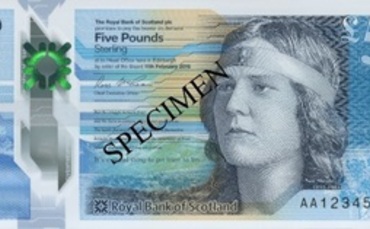The world’s largest security printer lays claim to being the only vertically integrated producer of polymer substrates and banknotes, encompassing manufacturing, design and printing. It launched its Safeguard polymer substrate in 2012.
It had initially seemed that Safeguard was free from animal products, and therefore ‘vegan’.
De La Rue has now revisited the issue in response to the outcry from vegans, vegetarians, and certain religious groups that followed the revelation that the Bank of England’s polymer £5 (printed on a polymer substrate from Innovia Films) contained miniscule amounts of tallow.
A De La Rue spokesman told PrintWeek: “Our initial analysis of our supply chain suggested that our polymer substrate did not contain any traces of tallow, and we advised specific customers on this basis.
“However, recognising the concern expressed by the public in recent days, we have undertaken a detailed and thorough review of our polymer supply chain. This review has identified the potential for minute traces of animal derivative, equivalent to a maximum of 0.003% per banknote. We are now working with our suppliers to identify ways of addressing this.”
Safeguard is in use by 14 customers, including the Maldives, and has been deployed by all three Scottish issuing banks. Clydesdale Bank’s £5 polymer note entered circulation in September, with the Bank of Scotland and Royal Bank of Scotland (pictured below) following in October.

Earlier this week campaigner Doug Maw said he had been assured by the Bank of Scotland that its notes did not contain tallow.
His petition has now gained more than 122,000 signatures.










